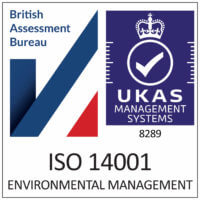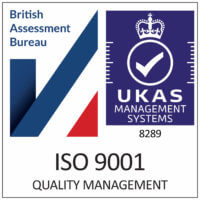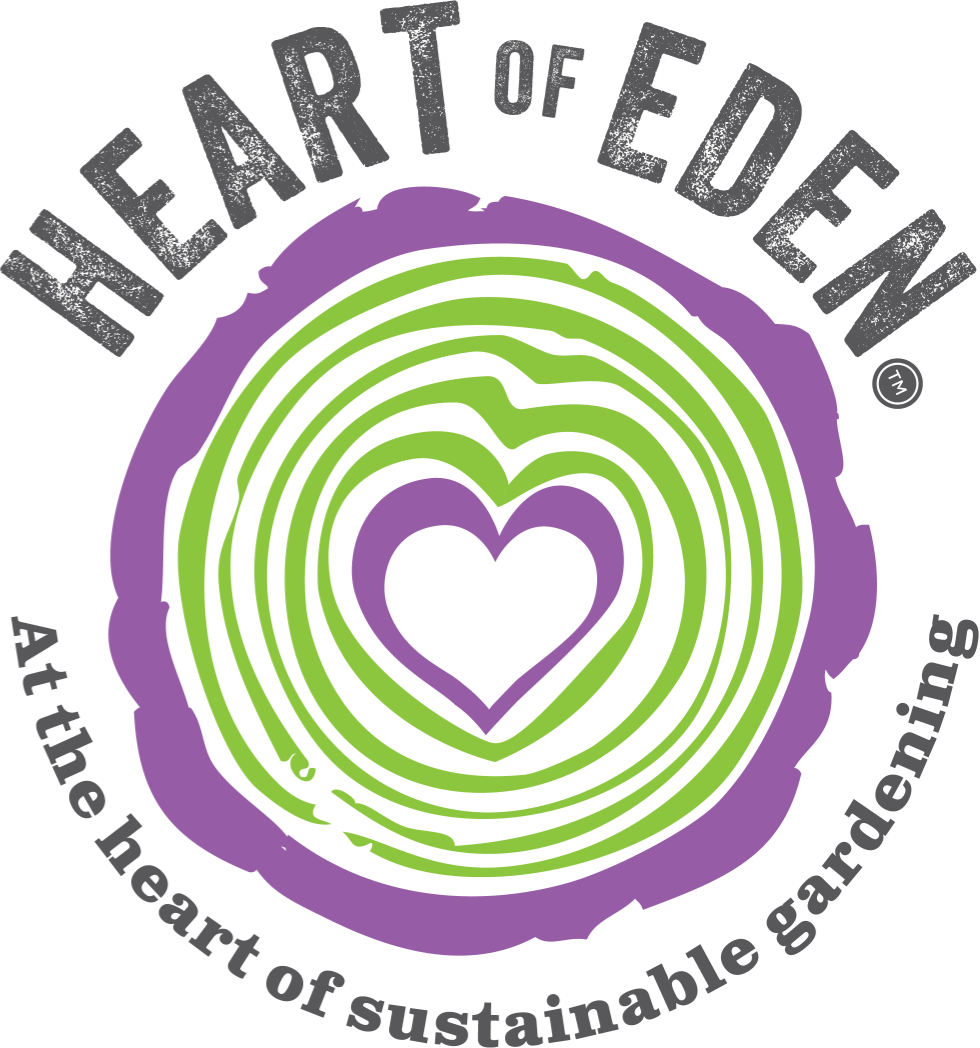Discover the Benefits of Using Peat-Free All-Purpose Compost in Your Garden
Oct 3rd 2023
Are you tired of struggling with your garden and wondering if there might be a better way? Look no further! In this article, we will explore the incredible benefits of using peat-free all-purpose compost in your garden. From improving soil fertility to promoting biodiversity, this environmentally friendly option is a game-changer for both seasoned gardeners and beginners alike. Get ready to take your gardening to the next level as we delve into the world of peat-free compost and discover how it can transform your outdoor space.
When it comes to gardening, using peat-free all-purpose compost can have numerous benefits for both the environment and your own well-being. By making a conscious choice to switch to peat-free alternatives, you can contribute to a greener and more sustainable future while enjoying healthier plants and saving money. Let’s explore the wide range of advantages that peat-free all-purpose compost offers.
1. Environmental Benefits
1.1 Reduces carbon emissions
One of the major environmental benefits of using peat-free all-purpose compost is the significant reduction in carbon emissions. Peat extraction involves the release of large amounts of carbon dioxide, a major contributor to climate change. By choosing peat-free alternatives, you are actively reducing your carbon footprint and helping to mitigate climate change.
1.2 Preserves peat bogs and wildlife habitats
Peat bogs are unique and valuable ecosystems that support a diverse range of wildlife species. The extraction of peat for gardening purposes poses a threat to these habitats and the plants and animals that rely on them. By opting for peat-free compost, you are contributing towards the preservation of peat bogs and protecting the delicate balance of these habitats.
1.3 Avoids contributing to climate change
The use of peat-based compost directly contributes to climate change by releasing stored carbon into the atmosphere. It is estimated that peat extraction and degradation account for approximately 6% of global carbon emissions. By utilizing peat-free alternatives, you can avoid this contribution to climate change and promote more sustainable gardening practices.
1.4 Protects water quality
Using peat-based compost can have adverse effects on water quality. Peat extraction disrupts the natural filtration properties of peat bogs, leading to increased nutrient runoff and water pollution. Opting for peat-free all-purpose compost helps to safeguard water quality by reducing the risk of nutrient pollution and supporting healthier aquatic ecosystems.
2. Health Benefits
2.1 Chemical-free and safe for use
Peat-free all-purpose compost is free from harmful chemicals, pesticides, and synthetic additives commonly found in traditional peat-based alternatives. This makes it a safer choice for both you and your plants. By eliminating these potential toxins from your gardening practices, you can create a healthier environment for your green space and ensure the well-being of yourself and your family.
2.2 Improves soil structure and fertility
Peat-free all-purpose compost is rich in organic matter, which helps to improve soil structure and fertility. It enhances soil aeration, drainage, and nutrient-holding capacity, creating a favorable environment for plant growth. By incorporating peat-free compost into your garden, you can cultivate healthier soil, resulting in stronger and more vibrant plants.
2.3 Enhances nutrient absorption in plants
The organic matter present in peat-free all-purpose compost improves the nutrient-holding capacity of soil, allowing plants to access essential elements more efficiently. This enhances nutrient absorption, ensuring that your plants receive the necessary nutrition for optimal growth and development. By using peat-free alternatives, you are providing your plants with a nutrient-rich environment that supports their overall health.
2.4 Supports beneficial microorganisms
Peat-free all-purpose compost contains a diverse array of beneficial microorganisms that contribute to a healthy soil ecosystem. These microorganisms aid in nutrient recycling, disease suppression, and the breakdown of organic matter. By choosing peat-free alternatives, you are fostering a thriving soil microbiome, which in turn promotes the overall health and vitality of your garden.
3. Cost-Effectiveness
3.1 Longer-lasting than peat-based composts
Peat-free all-purpose compost tends to have a longer lifespan compared to peat-based compost. Its organic matter content helps to retain moisture and slow down decomposition, resulting in compost that lasts longer in your garden. This longer lifespan translates to cost savings as you will require less frequent compost replacements, making it a more economical option in the long run.
3.2 Reduces the need for fertilizers
The nutrient-rich nature of peat-free all-purpose compost reduces the reliance on additional fertilizers. The organic matter present in the compost slowly releases nutrients into the soil, providing a steady supply for your plants. Consequently, you can minimize the need for synthetic fertilizers, saving money on supplementary soil amendments and promoting a more sustainable gardening approach.
3.3 Increases water retention in soil
Peat-free all-purpose compost has excellent water retention capabilities due to its high organic matter content. This means that your soil will retain moisture for longer periods, reducing the need for frequent watering. By using peat-free alternatives, you can conserve water resources and save money on watering needs, all while ensuring your plants remain adequately hydrated.
3.4 Saves money on watering needs
The increased water retention capacity of peat-free all-purpose compost translates into reduced watering requirements for your plants. As the compost holds moisture for longer periods, you can reduce the frequency of watering, saving both time and money. By incorporating peat-free alternatives into your gardening routine, you can achieve cost-effective watering practices while maintaining healthy plants.
4. Versatility
4.1 Suitable for a wide range of plants
Peat-free all-purpose compost is highly versatile and suitable for a wide range of plants, making it a great choice for various gardening endeavors. Whether you’re growing flowers, vegetables, herbs, or shrubs, peat-free alternatives provide the necessary nutrients and soil structure for successful growth and development. With peat-free all-purpose compost, you can create a thriving garden no matter your plant preferences.
4.2 Compatible with various gardening techniques
Peat-free all-purpose compost is compatible with a multitude of gardening techniques. Whether you prefer container gardening, raised beds, or traditional ground planting, peat-free alternatives can accommodate your preferred gardening style. Their versatility allows you to experiment and explore different methods without compromising the health and vitality of your plants.
4.3 Can be used for indoor and outdoor gardening
Peat-free all-purpose compost is equally suitable for both indoor and outdoor gardening. Whether you have a small apartment with limited outdoor space or a sprawling garden, you can rely on peat-free alternatives to support your gardening endeavors. Their adaptability makes them an excellent choice for urban gardening, enabling you to bring the joys of gardening indoors or make the most of your outdoor green space.
4.4 Ideal for containers, hanging baskets, and raised beds
Another advantage of peat-free all-purpose compost is its suitability for various types of gardening containers. Whether you have hanging baskets, pots, or raised beds, peat-free alternatives provide the necessary nutrients and structure to foster healthy plant growth. With peat-free all-purpose compost, you can maximize the potential of your containers and create stunning displays of flowers or bountiful harvests of vegetables.
5. Sustainability
5.1 Supports the shift towards eco-friendly practices
Choosing peat-free all-purpose compost aligns with the shift towards more eco-friendly gardening practices. As awareness about the environmental impact of peat extraction grows, many gardeners are making the conscious decision to opt for sustainable alternatives. By using peat-free compost, you are contributing to a greener future and promoting responsible gardening practices that prioritize environmental stewardship.
5.2 Promotes responsible and ethical gardening
Peat extraction often involves the disturbance of delicate ecosystems and the destruction of habitats for a variety of wildlife species. By using peat-free all-purpose compost, you can actively contribute to responsible and ethical gardening. By making this choice, you are demonstrating a commitment to safeguarding biodiversity and supporting the conservation of endangered species.
5.3 Contributes to a greener and more sustainable future
The use of peat-free all-purpose compost has a positive impact on our environment, contributing to a greener and more sustainable future. By reducing carbon emissions, preserving habitats, and conserving water resources, you are playing an active role in mitigating climate change and protecting our planet. Every choice you make in your garden can make a significant difference in building a sustainable future for generations to come.
5.4 Aligns with principles of organic gardening
Peat-free all-purpose compost aligns perfectly with the principles of organic gardening. The avoidance of synthetic chemicals, the support of beneficial microorganisms, and the enhancement of soil fertility are all fundamental aspects of organic gardening. By incorporating peat-free alternatives into your gardening practices, you are embracing the principles of organic gardening and nurturing a natural and balanced ecosystem in your garden.
6. Easy to Use
6.1 Similar application as peat-based compost
Using peat-free all-purpose compost is as easy as using peat-based compost. You can apply it in the same manner, whether you’re mixing it with existing soil or using it as a standalone medium for container gardening. There is no need for extra steps or complicated processes, making the switch to peat-free alternatives seamless and hassle-free.
6.2 Requires no additional steps or complicated processes
Unlike some specialized gardening practices, using peat-free all-purpose compost requires no additional steps or complicated processes. You can simply incorporate it into your existing gardening routine without any major adjustments. Whether you’re an experienced gardener or a novice, peat-free alternatives are user-friendly and accessible to everyone.
6.3 Can be used by both experienced and novice gardeners
Peat-free all-purpose compost is suitable for gardeners of all skill levels. Whether you’ve been tending to plants for years or are just starting your gardening journey, peat-free alternatives provide an easy and effective way to promote the health and vitality of your plants. With their straightforward application, you can confidently use peat-free compost and enjoy the benefits of a more sustainable garden.
6.4 Minimal adjustment required for transitioning
The transition from peat-based compost to peat-free all-purpose compost requires minimal adjustment. As peat-free alternatives offer similar characteristics and functionalities, you can seamlessly incorporate them into your gardening routine. By making this simple switch, you can unlock a multitude of benefits while cultivating a garden that is not only beautiful but also environmentally friendly.
7. Regulatory Support
7.1 UK government’s commitment to phasing out peat usage
The UK government has demonstrated its commitment to phasing out the use of peat in horticulture. Recognizing the environmental impact of peat extraction, legislative measures and targets have been put in place to encourage the transition towards more sustainable alternatives. This regulatory support further underscores the importance and benefits of using peat-free all-purpose compost in your garden.
7.2 Legislative measures and targets in place
In line with the UK government’s commitment, various legislative measures and targets have been put in place to encourage the reduction of peat usage. This includes the banning of peat in certain applications and the promotion of alternative options. By embracing these regulations and targets, both gardeners and manufacturers are actively contributing to the overall shift to more sustainable gardening practices.
7.3 Financial incentives for peat-free alternatives
The government’s commitment to phasing out peat has been accompanied by financial incentives to support the adoption of peat-free alternatives. These incentives aim to alleviate any cost concerns associated with the transition from peat-based to peat-free all-purpose compost. By leveraging these financial incentives, gardeners can make the switch to peat-free alternatives more easily and cost-effectively.
7.4 Growing support from gardening and environmental organizations
Gardening and environmental organizations are increasingly supporting the use of peat-free all-purpose compost. They recognize the immense benefits of peat-free alternatives in preserving the environment, supporting sustainable gardening practices, and protecting wildlife habitats. The growing support from these organizations highlights the importance of using peat-free compost and encourages gardeners to make the transition.
8. Impact on Wildlife
8.1 Peat extraction harms various wildlife species
The extraction of peat for gardening purposes has a detrimental impact on various wildlife species. Peat bogs are home to a wide range of plants, insects, birds, and mammals that rely on this unique habitat for survival. The disruption caused by peat extraction can result in habitat loss, decreased biodiversity, and a decline in certain wildlife populations.
8.2 Using peat-free compost protects habitats
By using peat-free all-purpose compost, you can play a vital role in protecting wildlife habitats. Peat extraction destroys the delicate balance of peat bogs, while peat-free alternatives offer a sustainable and responsible solution. By choosing peat-free compost, you are actively supporting the preservation of habitats for numerous wildlife species, contributing to the overall conservation of biodiversity.
8.3 Supports biodiversity and ecosystem balance
Peat-free all-purpose compost helps to maintain the biodiversity and balance of ecosystems. By preserving peat bogs and their unique plant communities, you are indirectly supporting the survival of countless organisms, from pollinators to microorganisms. By using peat-free alternatives, you are actively contributing to the health and resilience of ecosystems, promoting the coexistence of diverse species within your garden.
8.4 Contributes to the conservation of endangered species
Many species that inhabit peat bogs are classified as endangered or threatened due to habitat destruction and degradation. By using peat-free all-purpose compost, you are taking a proactive step towards the conservation of these species. Your choice to protect wildlife habitats and promote sustainable gardening practices can make a significant difference in the long-term survival and recovery of endangered species.
9. Advocacy and Education
9.1 Educating gardeners about the advantages
Advocacy and education play a crucial role in driving the adoption of peat-free all-purpose compost. Through awareness campaigns and educational initiatives, gardeners can be informed about the numerous benefits of using peat-free alternatives. By highlighting the positive impact on the environment, health, and overall sustainability, gardeners can make informed choices that contribute to positive change.
9.2 Raising awareness about peat-free alternatives
Raising awareness about peat-free all-purpose compost is essential to encourage its adoption on a larger scale. Promoting the environmental benefits, cost-effectiveness, and versatility of peat-free alternatives can encourage gardeners to consider making the switch. By enhancing public understanding, we can collectively work towards a greener future and promote the use of peat-free alternatives as the norm.
9.3 Encouraging others to make the switch
Individual actions can have a ripple effect, and by advocating for peat-free all-purpose compost, you can inspire others to make the switch as well. Sharing your positive experiences, the benefits you’ve observed, and the reasons behind your choice can motivate fellow gardeners to embrace peat-free alternatives. By spreading the word and encouraging others on their gardening journey, you can be an influential force in creating a more sustainable gardening community.
9.4 Collaborating with local gardening communities and initiatives
Collaboration with local gardening communities and initiatives is a powerful way to drive change and promote the use of peat-free all-purpose compost. By joining forces with like-minded individuals and organizations, you can amplify the message and reach a broader audience. Together, you can organize workshops, events, and community projects centered around sustainable gardening practices, helping gardeners thrive while minimizing their environmental impact.
In conclusion, using peat-free all-purpose compost in your garden offers a multitude of benefits for both the environment and your own well-being. From reducing carbon emissions and protecting wildlife habitats to enhancing soil fertility and supporting eco-friendly practices, peat-free alternatives provide a sustainable and beneficial solution for all gardeners. By making the switch, you can contribute to a greener and more sustainable future, while enjoying the numerous advantages of peat-free all-purpose compost in your garden. So, why not take the first step toward a more environmentally conscious gardening experience and unlock the wonders of peat-free alternatives today?






